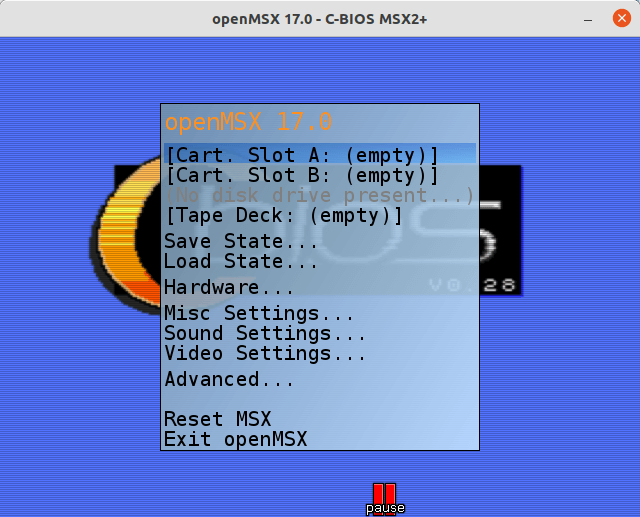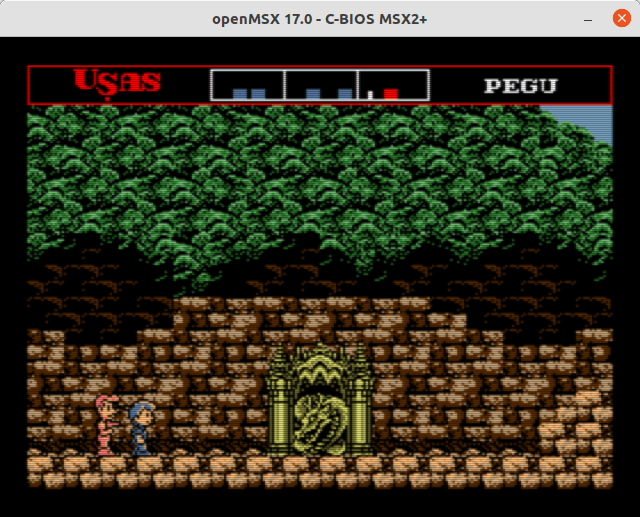Last Updated on April 22, 2022
Emulation is the practice of using a program (called an emulator) on a PC to mimic the behaviour of a home computer or a video game console, in order to play (usually retro) games on a computer.
Home computers were a class of microcomputers that entered the market in 1977 and became common during the 1980s. They were marketed to consumers as affordable and accessible computers that, for the first time, were intended for the use of a single non-technical user.
Back in the 1980s, home computers came to the forefront of teenagers’ minds. Specifically, the Amiga, ZX Spectrum, and Atari ST were extremely popular. They were hugely popular home computers targeted heavily towards games, but they also ran other types of software.
The MSX was launched in October 1983. At the heart of the machine was the Zilog Z80 CPU running at 3.58 MHz with 8-512KB of RAM. The Z80 was, of course, used in popular home computers such as the Sinclair ZX81, ZX Spectrum and the Amstrad CPC. In the graphics department, the MSX employed the Texas Instruments TMS9918 graphics chip with 16KB of RAM, and sound was provided by the AY-3-8910 chip. The MSX incorporated a high quality keyboard instead of a chiclet keyboard.
The MSX was a big hit in Japan in the early 1980s selling 7 million units. In other markets the MSX faced fierce competition and largely passed Europe by. The primary MSX protagonists were Microsoft, and ASCII, a Japanese publishing company who helped set up Microsoft’s first overseas sales office. But many computer tech companies manufactured their own MSX machines including the likes of Sony, Samung and GoldStar (now trading as LG).
MSX ROMs
For the best MSX experience you’ll need to clone your own BIOS, or download BIOS images. The latter presents the perennial problem of copyright law in your country, so it’s impossible for us to establish the legality from your perspective.
Bear in mind that openMSX is supplied with its Compatible BIOS. It offers a faithful clone but doesn’t provide all functionality to run a complete MSX machine.
MSX Emulators
openMSX is our favorite open source emulator for the MSX architecture by a country mile.

It emulates a wide range of MSX systems (MSX, MSX2, MSX2+ and turboR generation) and related hardware such as the Pioneer Palcom Laserdisc system.
The emulator includes support for hard- and software scalers, offers great accuracy including pixel accurate rendering as well as timestamped on-demand sync timing. There’s also TCL scripting which lets you enhance the software with powerful scripts, and audio/video recording. The emulator runs on a wide range of operating systems including Linux.

Another MSX emulator for Linux is fMSX. The source code is available, but unlike openMSX it requires a license for commercial use.
MSX software
There are over 1,000 games released for the MSX, MSX2, MSX2+ and turboR home computers. Remember they remain under copyright.
MSX was the platform for major Japanese game studios such as Konami and Hudson Soft. The Metal Gear series, for example, was first written for MSX hardware. And the MSX range helped establish a number of other popular video game franchises including Bomberman, Puyo Puto and Antarctic Adventure.
| Home Computers | |
|---|---|
| Amiga | Family of personal computers introduced by Commodore in 1985 |
| Amstrad CPC | Combined the computer, keyboard and data storage in a single unit |
| Atari ST | A popular line of personal computers from Atari Corporation |
| BBC Micro | Series of computers designed and built by Acorn |
| Commodore 64 | Hugely popular home computer |
| Dragon | Built around the Motorola MC6809E processor running at 0.89 MHz |
| Electron | A microcomputer sported a Synterek SY6502A CPU clocked at 2MHz |
| MSX | A popular range particularly in Japan |
| Oric | The underrated Oric-1 and Oric Atmos |
| QL | Based on a Motorola 68008 CPU clocked at 7.5 MHz with 128KB of RAM |
| TRS-80 | Very early mass-produced and mass-marketed retail home computers |
| VIC-20 | 8-bit home computer that was released in 1980/1 |
| ZX80 | Predecessor to the ZX81; ignited the UK's home computer market |
| ZX81 | Low-cost introduction to home computing notorious for its RAM pack wobble |
| ZX Spectrum | One of the biggest selling home computers |
 Read our complete collection of recommended free and open source software. Our curated compilation covers all categories of software. Read our complete collection of recommended free and open source software. Our curated compilation covers all categories of software. Spotted a useful open source Linux program not covered on our site? Please let us know by completing this form. The software collection forms part of our series of informative articles for Linux enthusiasts. There are hundreds of in-depth reviews, open source alternatives to proprietary software from large corporations like Google, Microsoft, Apple, Adobe, IBM, Cisco, Oracle, and Autodesk. There are also fun things to try, hardware, free programming books and tutorials, and much more. |
